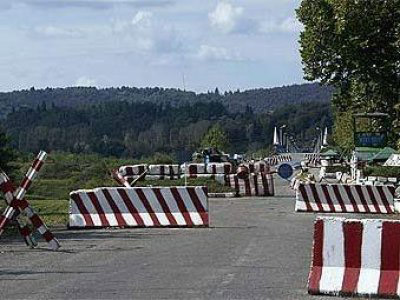Astana, Kazakhstan, Jan. 30
By Daniyar Mukhtarov - Trend:
The idea of restoring the customs posts between Kazakhstan and Russia is advantageous for a few businessmen, not ready for the competition, Kazakh political analyst, head of "World of Eurasia" public fund Eduard Poletayev said.
"The customs post principle does not fully coincide with the trend in the post-Soviet area," he told Trend. "Some experts think that the restoration of customs posts on the border between Kazakhstan and Russia will protect the interests of few businessmen, suffering from the competition with Russian goods."
Poletayev was commenting on the recent debate in connection with the depreciation of the Russian ruble rate and mass purchase of goods by Kazakhs in neighboring Russia.
He said that the majority of the population welcomes the customs post elimination because it is possible to freely move between the countries following the Eurasian Economic Union (EAU) establishment.
The director of the Macroeconomic Research Center Olzhas Kudaibergenov urged the Kazakh authorities to restore the customs borders with Russia.
"It is necessary to do this to maintain the Kazakh economy in the current difficult situation and to protect the markets from the influx of Russian products due to the rapid collapse of the Russian currency," he said.
Khudaibergenov said that Kazakhstan, after the collapse of the Russian ruble, needs to return the customs posts, which were abolished during creation of the Customs Union, to the Russian-Kazakh border.
"We should restore customs posts and set quotas for products-competitors," Khudaibergenov said earlier at a press conference. "Such a measure will help to protect the economy of Kazakhstan and allow keeping a record of ruble movements. In the current situation it would be logical if Russia itself offered to Kazakhstan to restore the customs borders so that the problems in its economy wouldn't spill over to its partners in the Eurasian Union. Otherwise, the discussions about leaving the EAU will become more substantive and resolute."
In his opinion, such measure as the restoration of customs posts may be temporary - for two years, with the possibility of extension for another year.
In turn, Poletayev believes that such measure will facilitate the existence of only those members of the domestic business, which were in greenhouse conditions prior to January 1, 2015.
He recalled that the customs posts within the EAU have been eliminated in order to ensure the principle of the four freedoms: capital, people, goods and technologies.
"If you remember, the head of state Nursultan Nazarbayev warned the business about the need to be more competitive, but not all listened and had time to find their way in the new environment," Poletayev said.
The ideas on restoring the customs posts emerged after the Eurasian Economic Union started operating in what has become a difficult time for Russia's economy [decrease in the prices for oil and raw materials, sanctions], according to the expert.
"The Eurasian Economic Union hasn't still sufficiently outgrown the Customs Union," he said. "It is a small child who hasn't grown up yet."
"All that is going on now are the remains of the Customs Union, therefore, it is too early to scold the Eurasian Economic Union," said the expert.
The prices will rise soon in Russia as well, according to Poletayev.
The Treaty of the Eurasian Economic Union does allow Kazakhstan to set customs posts in several cases. Member states have the right to impose restrictions in the mutual trade in goods if such restrictions are necessary for protection of the human life and health, public morality, law and order, environment, animals and plants, cultural values, fulfillment of the international obligations and ensuring the country's defense and security of the member states. However, such restrictions are not the means of unjustifiable discrimination or a disguised restriction of trade.
Edited by CN






